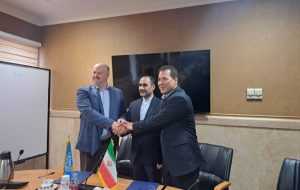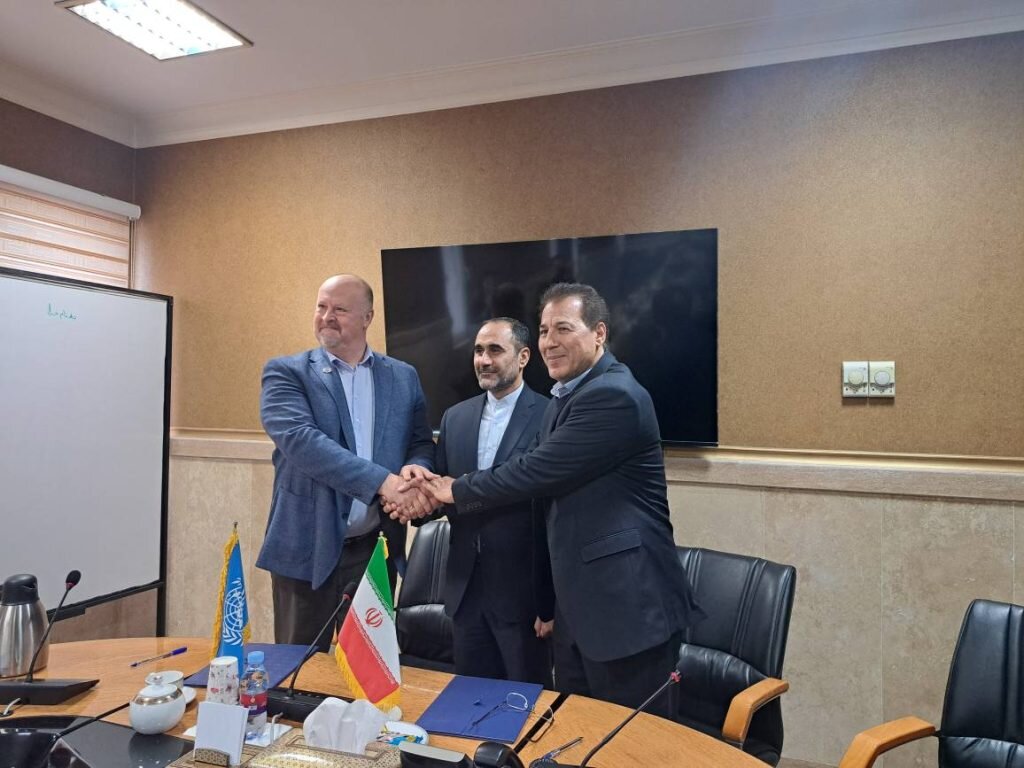Anti-Narcotics Police equipped with medical devices to monitor drug trafficking
TEHRAN –To further enhance the operational capacity of the Iranian Anti-Narcotics Police, the United Nations Office on Drugs and Crime (UNODC) has provided them with two Medical Devices, including a portable Doppler sonography, and a veterinary anesthesia machine to support drug supply reduction activities in Iran. In this line, an event was organized at the


TEHRAN –To further enhance the operational capacity of the Iranian Anti-Narcotics Police, the United Nations Office on Drugs and Crime (UNODC) has provided them with two Medical Devices, including a portable Doppler sonography, and a veterinary anesthesia machine to support drug supply reduction activities in Iran.
In this line, an event was organized at the premises of the Drug Control Headquarters (DCHQ) in Tehran, with the presence of representatives from the UNODC Iran, DCHQ, and Iranian Anti-Narcotics Police (ANP), the UNODC website announced in a press release on November 18.
Iran remains one of the major transit routes for drug trafficking from Afghanistan to European countries. UNODC has built a strong partnership with the Government of the Islamic Republic of Iran in several areas including the capacity building for the Iranian law enforcement forces and has been providing technical assistance to the Iranian Government in their fight against illicit trafficking of drugs and precursors.
UNODC has supported the work of the Iranian Anti-Narcotics Police dog training center, through the provision of fully trained dogs, canine trailers, and canine accessories, as well as the provision of specialized training for canine handlers and trainers, and medical veterinary equipment.
These procurements were carried out under Sub-Programme 1 of the UNODC Country Partnership Programme (CPP) 2023-2026.
The event was organized as part of the activities outlined in the framework of Sub-Programme1, specifically focusing on “Border Management and Illicit Trafficking”.
During the official ceremony, Alexander Fedulov, UNODC Iran Country Representative, stated that UNODC has established a strong relationship with the Government of Iran and is highly aware of the educational and technical requirements of the drug control and law enforcement agencies and is willing to extend required support upon the availability of financial support from donor countries.
Mohammad Narimani, Interim Director General of the International Relations Office of DCHQ expressed his gratitude to the UNODC for continuous support particularly in providing cutting-edge equipment and specialized training that have significantly improved operational effectiveness in drug control efforts.
Boosting Iran’s capacity
In August, the UNODC in Iran procured and installed three X-ray Body Scanners crucial for efficiently identifying narcotic drugs concealed in the body or swallowed in three international airports of the country, namely Imam Khomeini International Airport, Gorgan International Airport, and Ahvaz International Airport.
The aim is to prevent the illegal trafficking of drugs through the air border of Iran, the UN website announced in a press release on August 7.
On August 4, the UNODC in an official ceremony handed over one X-ray Body Scanner.
The official event was organized at the Imam Khomeini International Airport, with the presence of representatives from UNODC Iran, the DCHQ, and the Anti-Narcotics Police of Iran.
The Office also provided pertinent specialized training for end users of each device, under the guidance and supervision of professional technical engineers.
Mahdi Javaheri, Director General of the International Relations Office of DCHQ, in his statements, expressed his gratitude to the UNODC for continuous support extended to the Iranian controlling entities and hoped the support will continue and increase in the future, considering the high demand for provision of controlling equipment, especially X-ray devices.
On July 24, UNODC in Iran handed over 4 drug identification devices, procured through generous support by the Japanese Government, in an official ceremony at the premises of the DCHQ in Tehran.
These devices which will be used for controlling a wide range of drugs trafficked, especially at the eastern borders of Iran with Afghanistan, have been procured under sub-program 1 of the UNODC Country Partnership Program (CPP) 2023-2026.
The government of Japan has been supporting UNODC Iran’s activities on Drug Supply Reduction for many years.
MT/MG
